The Personality Kid

Brief Synopsis
Cast & Crew
Alan Crosland
Pat O'brien
Glenda Farrell
Claire Dodd
Robert Gleckler
Henry O'neill
Film Details
Technical Specs

Synopsis
Boxer Ritzy McCarty has managed to make a minor career for himself under the management of his wife Joan, despite his lack of a solid punch. His active footwork in the ring and colorful personality pleases the crowds and wins matches. Although Ritzy wants to try for the championship, Joan just wants him to stay in the game until he earns enough money to buy a vineyard. Ritzy's crowd pleasing techniques catch the eyes of Gavin and Stephens, two promoters. They are interested in taking over his management, but Joan drives a hard bargain, part of which is her continued participation in Ritzy's career. Under Gavin and Stephens, Ritzy starts fighting in better venues, where he attracts the attention of commercial artist Patricia Merrill. Patricia invites Ritzy to pose for her, and because he amuses her, their relationship develops into something more. Joan tolerates the affair because it does not seem to threaten their marriage. Then Ritzy learns that he has been winning matches because his opponents have been paid to take a dive. When he discovers that Joan agreed to these conditions, he leaves, accusing her of being a crook. Ritzy is suspended for fighting in a fixed fight. Now that he is no longer on top of things, Patricia loses interest in Ritzy as well. One day, Joan finds him sleeping in a train station and slips some money into his pocket. Finally he gets a job attracting customers to a health lecture. Patricia sees the ad and attends the lecture to talk to him. She invites him to visit her that evening, but when he arrives at the address she gave him, a pregnant Joan is waiting for him. Determined to obtain money for his child, Ritzy accepts an offer to take a dive for one hundred dollars. When his name is announced at the match, the crowd boos, expecting a set-up. However, Ritzy puts up a good fight, and when he hears that Joan has given birth to a boy, knocks out his opponent. The gangsters who hired him are furious and subject him to a beating. Impressed by the fair fight, however, reporter Rankin and Stephens visit him in the hospital and offer to put him back in the game, this time on the level.

Director

Alan Crosland
Cast
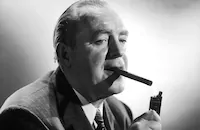
Pat O'brien

Glenda Farrell

Claire Dodd
Robert Gleckler
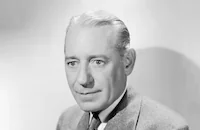
Henry O'neill
Thomas Jackson
Arthur Vinton
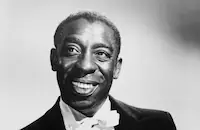
Clarence Muse

Clay Clement
George Cooper
George Pat Collins
Al Hill
Mushy Callahan
Myron Shlechter
Jack Perry
Harry Seymour
Mary Russell
Paul Power
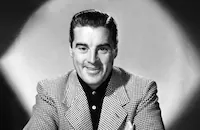
Phil Regan
Billy Arnold
Howard Russell
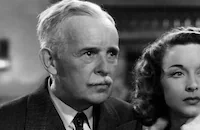
Howard Hickman
Margaret Morris
Landers Stevens
Harry Holman
Jack Kennedy
Sailor Vincent
Max Wagner
Huey White
Pauline True

Bess Flowers
Dan Toby
Morrie Cohan
John Sheehan
Crew

Film Details
Technical Specs

Articles
The Personality Kid
Farrell actually has a different sort of career here, not just as O'Brien's loyal wife but as his manager in the boxing game. She's good at what she does, lining up "bum of the month" matches for him to edge him toward the championship, but the problem is her showboat hubby, known in the business as Ritzy owing to his penchant for wearing a derby hat in the ring and dancing an Irish jig whenever he scores a knockout. Seems Ritzy's head gets a little to big for his derby once his career takes off, and he ends up leaving his wife for a society dame in the form of perennial Other Woman Claire Dodd. Only when he hits the skids does he realize just how valuable his faithful spouse is.
It's a formula as old as films about boxing, but it's done fairly well here. As the New York Times review had it: "Acted with some proficiency and humor by Pat O'Brien and Glenda Farrell, it succeeds in working up a fair sum of interest, without ever threatening to become one of the distinguished films of the year."
In his autobiography, O'Brien described his character as "a Cassius Clay" type, referring to the brash young boxer's attention-getting ways in the days before he became Muhammad Ali. O'Brien had apparently been a champion pugilist himself back in his days at Marquette University, and he was trained for this role by pros, one of whom plays a ring opponent. Alas, that was to no avail. As the Times review noted: "All this impressive statistical work adds up to zero. Mr. O'Brien and his various opponents in the film paw each other like long-lost brothers and some of the theoretically sleep-producing blows would hardly jar the script girl."
The film was directed by Alan Crosland, whose most significant place in film history is as director of Warner Brothers' milestone talkie The Jazz Singer (1927). The screenplay was co-written by F. Hugh Herbert, who knew a thing or two about putting snappy dialogue into the capable lips of Ms. Farrell, one of the fastest talkers in the business. He scripted six films for her between 1934 and 1938. His writing partner Erwin Gelsey wrote for her three times.
The film's title prior to release was "One Man Woman."
It should come as no big surprise that the story features a snippet (sung by O'Brien) of what was something of a theme song for the Warner Brothers studio at the time, "The Gold Diggers Song (We're in the Money)." The tune, introduced in the hit musical comedy Gold Diggers of 1933 (1933), turned up frequently in studio releases of the period. It even became the title of a Farrell-Joan Blondell comedy of 1935 and an animated toy cartoon of 1933.
The picture was shot with characteristic Warner speed and energy in less than a month, between February 12 and March 5, 1934.
Director: Alan Crosland
Screenplay: F. Hugh Herbert, Erwin S. Gelsey; based on a story by Gene Towne and C. Graham Baker, adapted by David Boehm
Cinematography: William Rees
Editing: Terry Morse
Art Direction: John Hughes
Music: Bernhard Kaun (uncredited)
Cast: Pat O'Brien (Ritzy), Glenda Farrell (Joan), Claire Dodd (Patricia), Robert Gleckler (Gavin), Henry O'Neill (Stephens).
BW-68m.
By Rob Nixon

The Personality Kid
Quotes
Trivia
Notes
The film's pre-release title was One Man Woman. According to the New York Times, Pat O'Brien, who had boxed at Marquette University, was trained for the film by boxer Jackie Fields, and a former champion, Mushy Callahan, was one of his opponents on screen. Another opponent was played by Myron Schlecter, the boxing champion of the USS Arizona. According to Call Bureau Cast Service, Schlecter's name was Marvin Schecter. Some contemporary sources credit Pudgy White with the role of Louis, but Al Hill is listed on the film.















